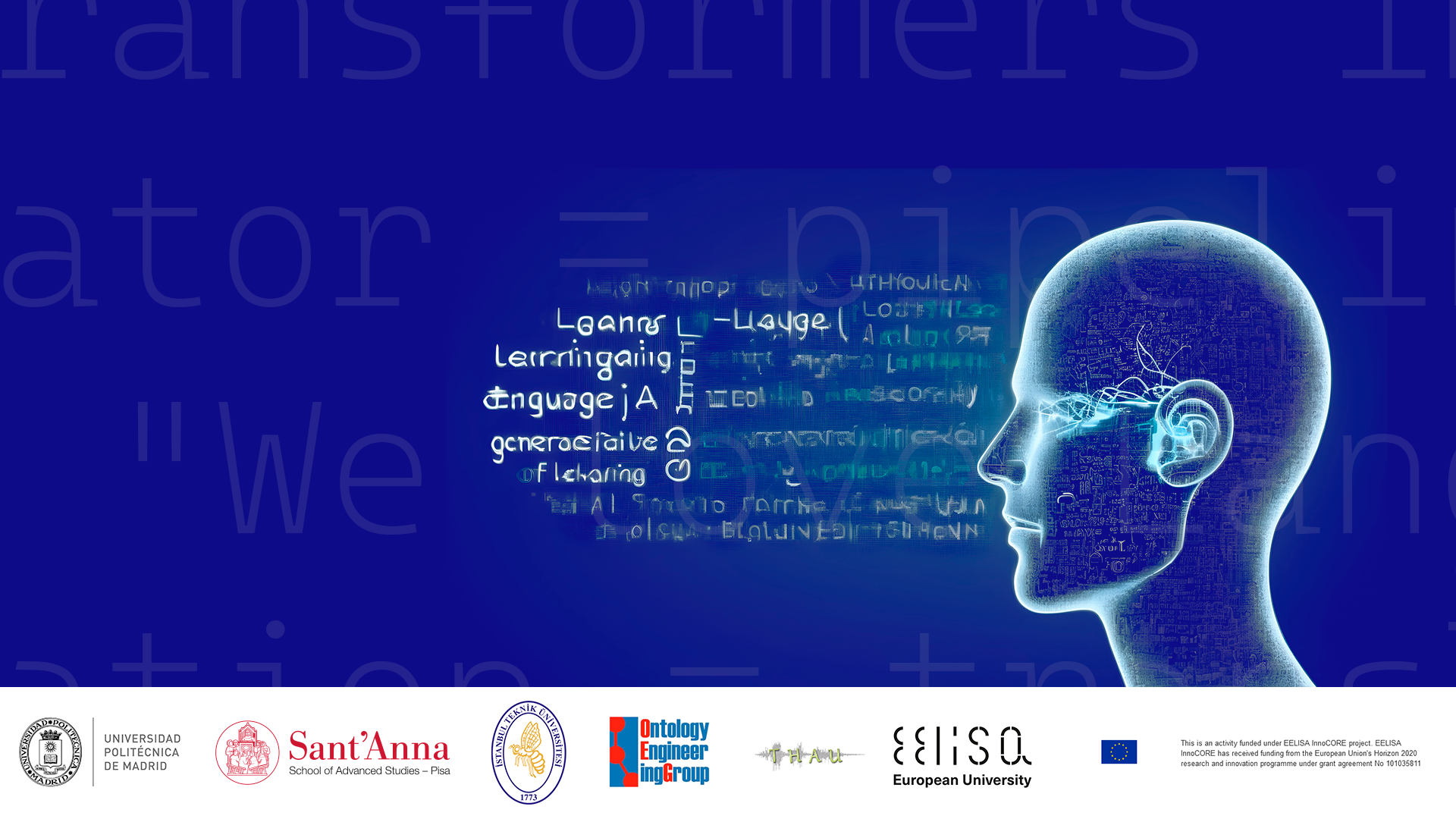
#EELISAConnectWorkshop: Teaching and Learning Language Technologies (text and speech) in light of Generative AI
There is a recent and avid burst in universal language models applied to translation, automatic text generation, text summarization, chatbots, speech and language recognition, speaker diarization and multi-speaker speech synthesis. One might have the feeling that only one technology can solve most language processing challenges. At the same time, some experts fear that there might be a hyper expectation on the capabilities of what is possible with these technologies today and about the knowledge that is needed to solve such challenges.
This workshop will try to reflect on these matters and reach coherent conclusions on the following scientific areas:
– What is the (real) state of the art of language technologies? (strengths and weaknesses of large language models)
– What can language models teach us about the organisation of the brain and its language areas?
– What can linguistics and neuroscience teach us about creating better artificial models of language?
– What are the job opportunities and entrepreneur chances in this interdisciplinary topic?
– What are the teaching needs of future developers and users of these technologies?
– What are the different frameworks used by each EELISA members, the philosophy behind them, how they resonate with the needs of employers?
HOW TO PARTICIPATE
EELISAConnect workshops have some budget available to cover travel and accomodation expenses of research staff from EELISA institutions.
Check availability with Patricia Martín Chozas (pmchozas@fi.upm.es) and Elena Montiel (emontiel@fi.upm.es)
WHEN
7th & 8th of March, 2024
WHERE
Edificio A (Building A) Escuela Técnica Superior de Ingenieros de Telecomunicación (ETSIT), UPM, Avenida Complutense, nº 30, Madrid
Bus: 82-F-G-U
Metro: Ciudad Universitaria (L6)
GPS: 40.452165,-3.726103,17
![]() This is an EELISA Connect Workshop funded under EELISA InnoCORE. EELISA InnoCORE has received funding from the European Union’s Horizon 2020 research and innovation programme under grant agreement No 101035811
This is an EELISA Connect Workshop funded under EELISA InnoCORE. EELISA InnoCORE has received funding from the European Union’s Horizon 2020 research and innovation programme under grant agreement No 101035811
